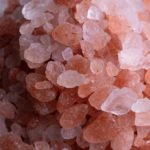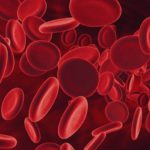Vitamin E deficiency diseases – do you know them?
Vitamin E is a fat-soluble vitamin, which is most notable for its antioxidant properties. It is the most potent fat-soluble anti-oxidant present in the human body. An antioxidant is a substance that protects the cells from the damaging effects of free radicals. These free radicals are highly reactive atoms or molecules produced in our body by an oxidation reaction and are harmful to body cells. Vitamin E has eight molecular forms and exists as α-tocopherol in blood. Tocopherol protects the cell membrane from causing lipid peroxidation of membrane lipids.
Dietary source
Vitamin E is present in a variety of foods but its richest source is vegetable oils. Wheat germ oil, safflower oil, and sunflower oil are rich sources. All of these oils are polyunsaturated. Some monounsaturated oils containing vitamin E are olive and canola oils. Whole grains and nuts are also good sources of vitamin E. Though fruits and vegetables are a good source of antioxidants, they contain a minimal amount of vitamin E.
Recommended daily intake
The recommended daily dietary intake in adults is 15 mg. This requirement increases during lactation to about 20 mg per day. In children, a lesser intake is required and is met within the diet. The upper limit for adults is 1000 mg per day. An overdose has been found to be associated with a bleeding tendency.
Vitamin E deficiency diseases
Since vitamin E is a fat-soluble vitamin, its deficiency is associated with fat malabsorption syndromes like abetalipoproteinemia, cystic fibrosis, and cholestatic liver disease. Otherwise, the deficiency of vitamin E is very rare.
- Abetalipoproteinemia – is a rare genetic disorder caused by a mutation in the gene resulting in malabsorption of lipids and their metabolism in the liver. Levels of cholesterol and triglyceride are extremely low in plasma. It presents in early childhood with diarrhea and failure to thrive due to fat malabsorption. This also results in a deficiency of vitamin E.
- Cystic fibrosis – is a multisystem disease characterized by the dysfunction of the epithelium (lining cells) of airways, skin, urogenital system, intestine, and pancreas. Chronic deterioration of the function of the pancreas, intestine, and liver results in fat malabsorption with associated deficiency of vitamin E.
- Cholestatic liver disease – this disease occurs due to physical blockage of bile flow and the bile does not reach the intestine. This leads to jaundice (yellow discoloration of the eyes) and is associated with itching and passage of clay-colored stools. Since bile is essential for fat digestion, its absence is associated with the malabsorption of fat and fat-soluble vitamins (A, D, E, and K).
Indications for treatment with vitamin E
The above three conditions are known indications for treatment. It comes as colorful translucent capsules in various strengths. The dosage is as below:
- Cystic fibrosis: 100-200 mg/day
- Abetalipoproteinaemia: 50-100 mg/kg/day in adults and children
- Chronic cholestasis: 150-200 mg/kg/day
Due to its antioxidant or cell-protective properties, vitamin E is also used in the treatment of these conditions:
- Fibrocystic breast disease
- Coronary heart disease due to atherosclerosis
- High altitude sickness
- Cancer prevention – is based on the rationale that free radicals attack the DNA of cells to promote cancer. As an antioxidant, vitamin E may inhibit cancer formation by scavenging these free radicals. Many studies have found a protective role of vitamin E in oral, pharyngeal, and cervical cancer.
- Facial skin creams delay the effects of aging like wrinkling, pigmentation, and sagging.
- Vitamin E may help restore the age-related decrease in immune function and reduce the risk of several age-associated chronic diseases.
Vitamin E has multiple roles to play in our body, many of which are still not understood and are undergoing advanced research. Some of its uses are approved while others are based on early research. It is recommended to take a medical consult whenever it is used as a supplement.




























